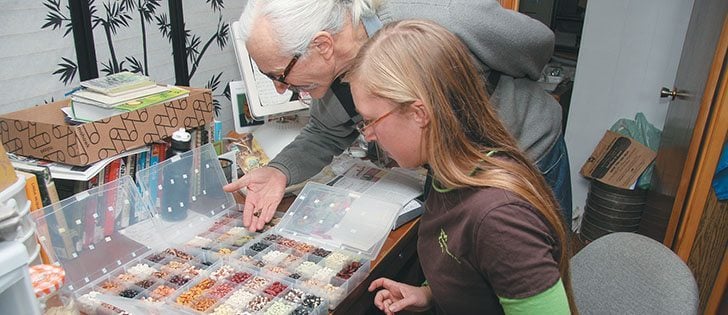Family supplies seeds from organically grown crops to customers who are rediscovering the benefits of local gardens
HUMBOLDT, Sask. — Growing crops to produce vegetable seeds means managing small plots at different locations in Saskatchewan.
For the Terniers at Prairie Garden Seeds, that includes gardens at their farm near Cochin, Sask., and at St. Peter’s Abbey at Muenster, Sask.
“We have to ensure garden seeds are pure, so we need a number of isolated fields,” said Jim Ternier, who lives in Humboldt with his wife, Marie-Louise Ternier-Gommers, a preacher and writer.
Their daughter, Rachelle Ternier, will pick up more of the business reins this year when she moves to the 85 acre family farm.
Read Also

Accurate accounting, inventory records are important
Maintaining detailed accounting and inventory records is not just a best practice; it’s a critical component of financial health, operational efficiency and compliance with programs like AgriStability.
There, she hopes to add a quarter acre to the farm’s three-acre garden plot and continue growing plants without chemicals or synthetic fertilizers. At the abbey, the Terniers use a high tunnel to boost the growth of plants such as tomatoes and cucumbers.
She will get help from Jim’s sister, Judy Ternier, who lives with her husband, Tom Burns, on adjacent land and runs a community shared agriculture program.
“For me to sustain the work and growth, I have to partner. A lot are interested but don’t know how to get into it,” said Rachelle, a former educational assistant who runs a cooking and food awareness program for Humboldt schoolchildren.
Jim has collected seeds from two acres of gardens at the abbey since 2005 in exchange for providing its kitchen with fresh produce. The two growing sites provide 80 percent of the seeds, with the remainder coming from a commercial seed source and certified organic grower.
Jim said seed saving sounds more daunting than it is.
“There’s lots to learn but it’s within the ability of most people,” he said.
He recommended starting small by letting peas get overripe and harvesting their seeds for the next crop.
Most seeds will keep for three to five years if dried and kept in a cool room, although onions and parsnips store for as little as one year.
Rachelle handles the business’s annual seed sales catalogue. The chore was formerly managed by Marie-Louise, who now has more time available for her interests in writing, retreats and workshops.
Rachelle and Jim’s interests include sharing their knowledge about seed saving and small-scale food production and their opinions about the politics of seeds and who controls them.
“The bulk of what we eat should come from close to home,” said Rachelle. “Worldwide, diets should look very different.”
Added Jim, who has been gardening since childhood: “Everyone should produce some of their own food.”
Marie-Louise said the family chose a simple rural lifestyle.
“There’s a freedom in that (that) most people don’t grasp,” she said.
“We didn’t need the latest and best.”
She’s happy Rachelle is going to farm, noting how they held onto their land in case one of their three children might want it.
Jim thinks Rachelle is eyeing expansion at the right time.
“There has been a noticeable in-crease in the last decade in people feeding themselves,” he said, citing the decreasing age of his customers and the number of families with young children buying seeds.
He thinks that stems from fears about the safety and security of their food supply.
Jim said his business evolved from growing produce for cottage owners and farmers markets to saving seeds, which helped him spread the workload over the entire year.
Prairie Seeds uses work spaces in Jim’s basement and the abbey to dry, store and package seeds for online sales (prseeds.ca) and the 12 sales events they attend each year.
Their business offers up to 600 garden plant and field crop seeds, mainly to customers in Saskatchewan and Alberta, with some sales to the United States and Europe. They had $40,000 in sales last year.
Rachelle said biodiversity is as important to her as to her father.
“We can’t just cut things, but the business has to be financial viable,” she said. “I see value in the way Dad’s been doing things. With climate change, we may need it one day and it’s important to keep growing. There’s stability in diversity. It’s valuable to keep around.”















